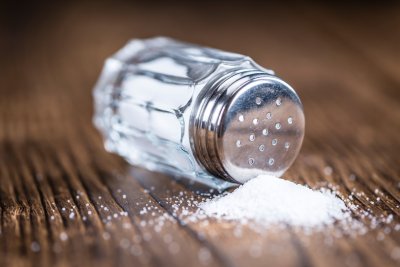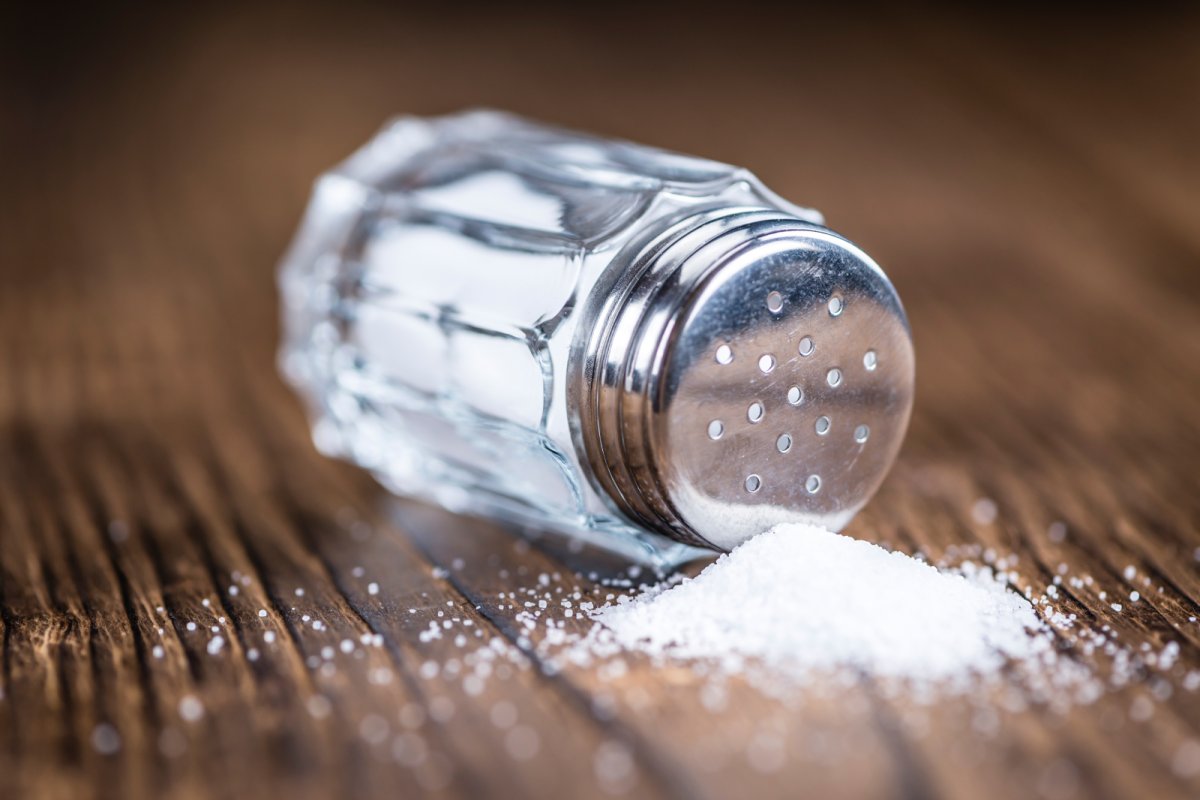 Salt on a table. Credit: HandmadePictures: Shutterstock
Salt on a table. Credit: HandmadePictures: Shutterstock
NEW research by Action on Salt (the expert research group based at Queen Mary University of London) assessed the salt content of over 600 Cheddar and similar cheeses across 10 retailers and found that UK food manufacturers have made minimal reductions to salt content in cheese over the last decade. Action on Salt is urging the government to set more stringent, mandatory salt reduction targets beyond 2024.
According to the new data, the cheeses with the highest level of salt are plant-based, averaging 1.91g/100g. Cheddar follows closely behind with an average salt content of 1.78g/100g. An average suggested portion of this cheese (typically a small ‘matchbox’ 30g size) equates to 0.5g salt, which is more salt than a packet of crisps.
Previous research suggests no progress has been made in reducing salt in this category of food. In 2012, the average salt content of Cheddar and similar cheese was 1.68g/100g, compared to 1.70g/100g in 2023. Some notable reductions were made in products, whereas others appear to have increased in salt.
While many of the cheese products available today fall below the maximum salt target set in 2020 by the Department of Health and Social Care to be achieved by end of 2024, these large variations in salt, and the lack of any significant reductions since 2012, make it clear that the targets are too lenient, with scope for further reductions.
If certain manufacturers can make the same cheese with far less salt, so can all the others. The current salt reduction targets also need immediate review and stronger enforcement as they currently do not include plant-based cheese products, more than half of which currently exceed the target set for cheese.
Professor Graham MacGregor, Professor of Cardiovascular Medicine at Queen Mary University of London and Chairman of Action on Salt adds:
“Reducing salt is the most cost-effective measure to lower blood pressure and reduce the number of people suffering from strokes and heart disease and life changing disabilities associated with this – all of which is completely avoidable. According to the Department of Health & Social Care, each one gram/day reduction in population salt intake, saves more than 4,000 premature deaths per year. And yet, the government do little to help the public in reducing their salt intake and should force the food industry to use much less salt in their products, with strict enforced targets.”
The full report is here.
Sustain: Sustain The alliance for better food and farming advocates food and agriculture policies and practices that enhance the health and welfare of people and animals, improve the working and living environment, enrich society and culture and promote equity.
Sustain
The Green House
244-254 Cambridge Heath Road
London E2 9DA
020 3559 6777
sustain@sustainweb.org
Sustain advocates food and agriculture policies and practices that enhance the health and welfare of people and animals, improve the working and living environment, promote equity and enrich society and culture.
© Sustain 2024
Registered charity (no. 1018643)
Data privacy & cookies








